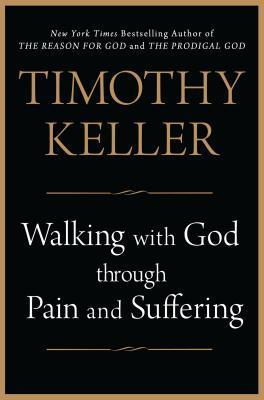More on this book
Community
Kindle Notes & Highlights
Read between
May 20 - June 30, 2021
What if that future world will somehow be greater for having once been broken and lost?
What if, in the future, we came to see that just as Jesus could not have displayed such glory and love any other way except through his suffering, we would not have been able to experience such transcendent glory, joy, and love any other way except by going through a world of suffering?
that in the end we cannot question God. Job calls on God to explain why such sorrows and griefs have come upon him. But in response, “the questioner is radically challenged to his right to pose the question in the first place.”
We
cannot imagine, however, what it would be like to lose not just a human relationship that has lasted for some years but the infinite love of the Father that Jesus had from all eternity. The separation would have been infinitely unbearable. And so Jesus experienced Godforsakenness itself on the cross when he cried out, “My God, my God! Why have you forsaken me?”
He is so committed to our ultimate happiness that he was willing to plunge into the greatest depths of suffering himself.
[God] gave us Jesus. . . . If God didn’t withhold from us His very own Son, will God withhold anything we need? If trust must be earned, hasn’t God unequivocally earned our trust with the bark on the raw wounds, the thorns pressed into the brow, your name on the cracked lips? How will he not also graciously give us all things He deems best and right? He’s already given us the incomprehensible.211
We are so instinctively and profoundly self-centered that we don’t believe we are.
His
love for you now—and this infallible hope for the future—are indeed a light in the darkness, by which we can find our way.
As for comfort, when we seek it, I can imagine none greater than the happy knowledge that when I see the death of a child, I do not see the face of God, but the face of His enemy. It is . . . a faith that . . . has set us free from optimism, and taught us hope instead.222
suffering in the meantime is often unjust and always something that God himself hates.
presenting God as not merely omnipotent but sovereign over every event in history,
The Bible teaches that God is completely in control of what happens in history and yet he exercises that control in such a way that human beings are responsible for their freely chosen actions and the results of those actions.
Suffering then is not outside God’s plan but a part of it.
“the main reason that Christians insist that God can be trusted in the midst of suffering is that . . . God himself has firsthand experience of suffering.”
“Christ learned humanhood from his suffering (Heb 5:8). [And therefore] we learn Christhood from our suffering.”
Because God is both sovereign and suffering, we know our suffering always has meaning even though we cannot see it.
According to Christian theology, suffering is not meaningless—neither in general nor in particular instances.
And that means that our suffering, despite its painfulness, is also filled with purpose and usefulness.
Our sufferings, if handled properly, bring the Lord glory.
to trust God when we do not understand him is to treat him as God and not as another human being.
“Aim at heaven and you get earth ‘thrown in’—aim [only] at earth and you get neither.”
the Bible teaches us that God uses suffering to remove our weaknesses and build us up.
suffering can strengthen our relationship to God as nothing else can.
in prosperity God whispers to us but in adversity he shouts to us.
Adversity makes us far more compassionate than we would have been otherwise.
who comforts us in all our affliction, so that we may be able to comfort those who are in any affliction,
The Son of God suffered unto the death, not that men might not suffer, but that their sufferings might be like His.
“All things work together for good to them that love God” (Rom 8:28).
insistence that suffering is something that must be walked through.
No, the promise is that God will be with us, walking beside us in it.
The apostle Peter has Isaiah 43 in mind when he tells his readers that suffering is like a refiner’s fire, like a forge or furnace.
While suffering, they should “commit themselves to their faithful Creator and continue to do good”
promising that “the God of all grace . . . after you have suffered a little while, will himself restore you and make you strong”
If we say, “I know you will answer this prayer, God. You can’t not answer it”—then our confidence is not really in God’s wisdom but in our own.
But look at Jesus. He was perfect, right? And yet he goes around crying all the time. He is always weeping, a man of sorrows. Do you know why? Because he is perfect. Because when you are not all absorbed in yourself, you can feel the sadness of the world. And therefore, what you actually have is that the joy of the Lord happens inside the sorrow.
then anything that comes into your life is something that, as painful as it is, you need in some way. And anything you pray for that does not come from him, even if you are sure you cannot live without it, you do not really need.
The Son of God suffered unto the death, not that men might not suffer, but that their sufferings might be like His. —George Macdonald,
“Son, when a child of mine makes a request, I always give that person what he or she would have asked for if they knew everything I know.”


